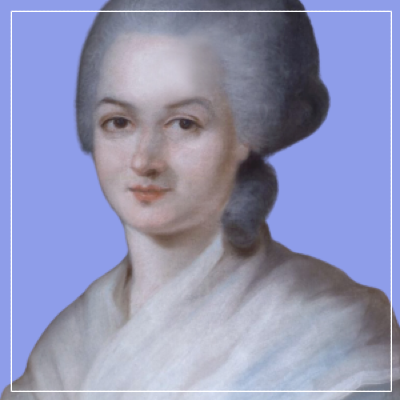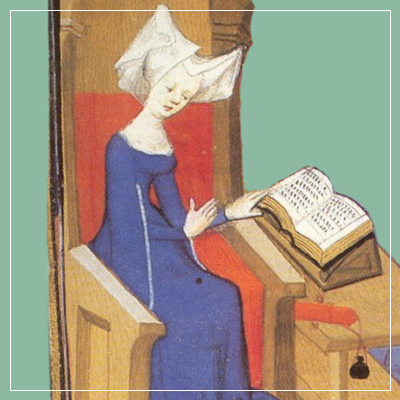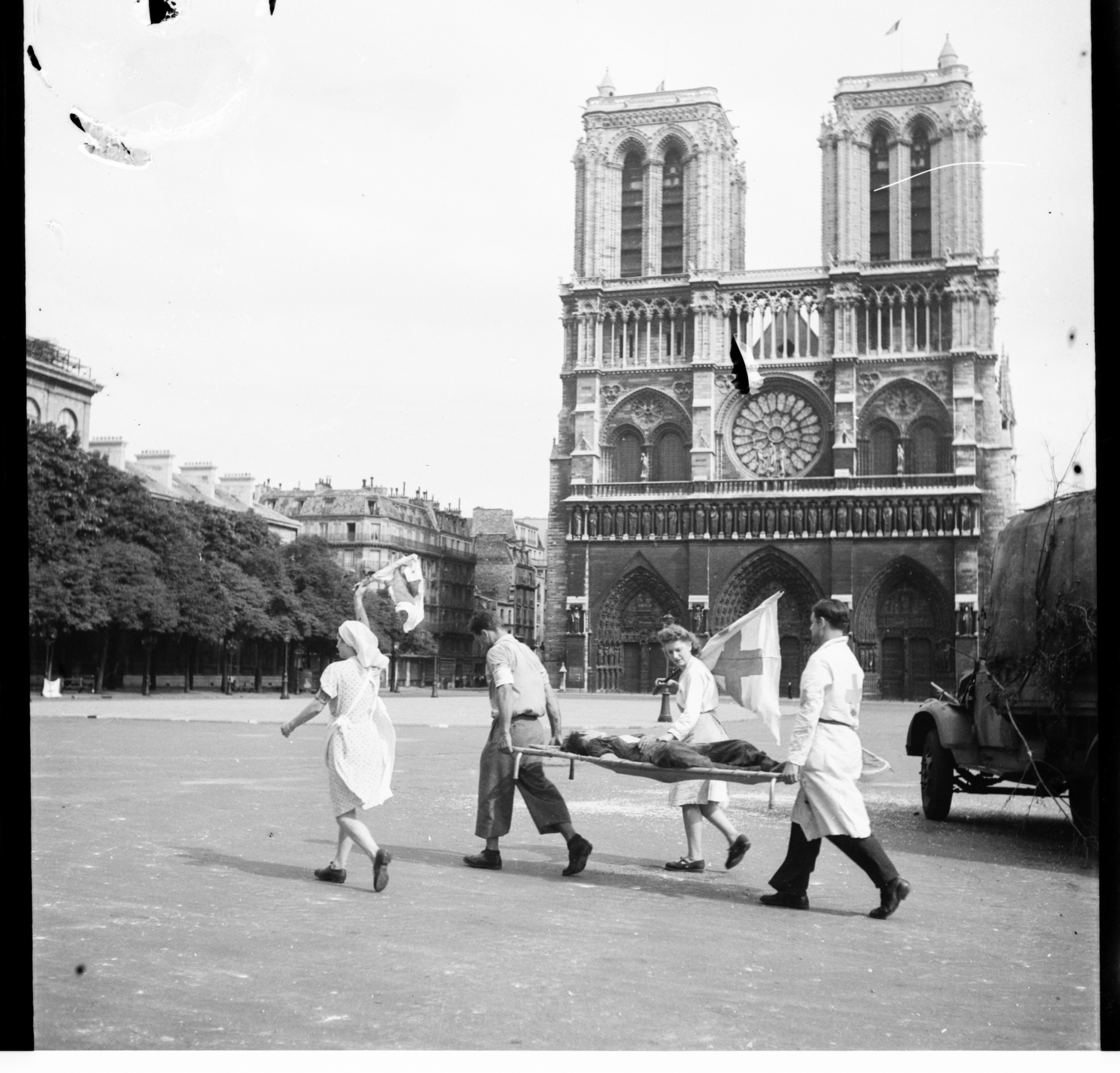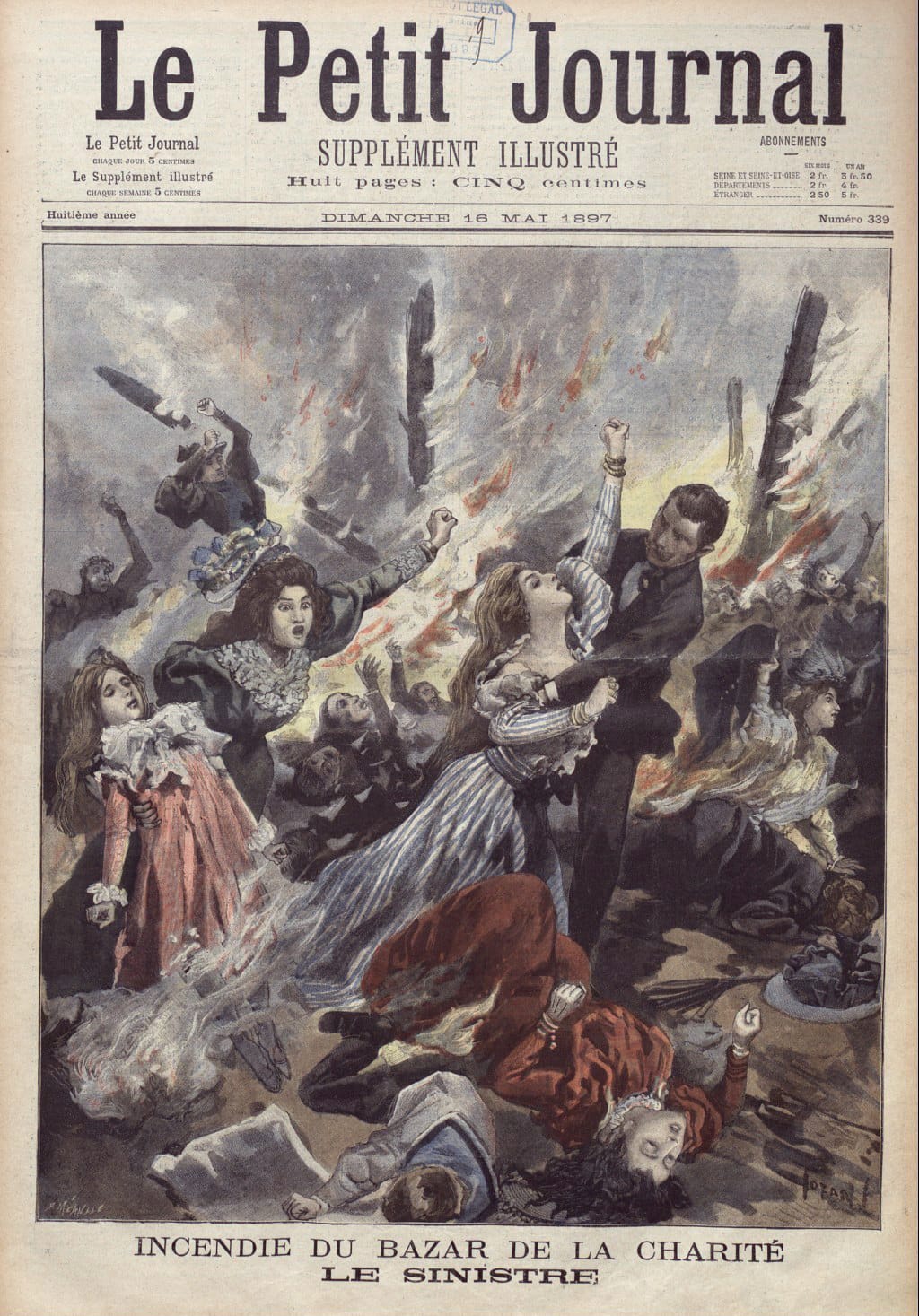
Who were the French women celebrated in the Olympics opening ceremony?
Whom we choose to put on a pedestal says a lot about our culture. The world over, public space is still dominated by male imagery.
Liberté, égalité, sororité. The organisers of the 2024 Paris Olympic Games opening ceremony pulled a twist on the French Republic's motto to set up a tableau celebrating French women. Ten golden statues of iconic heroines – and some I and most French people had never heard of – rose out of their pedestals in front of the National Assembly, as mezzo-soprano Axelle Saint-Cirel sang a breathtaking Marseillaise on the roof of the Grand Palais.
Presenting this homage with statues is not an innocent choice. Whom we choose to put on a pedestal says a lot about our culture. The world over, public space is still dominated by male imagery. When women are present, they are more often allegories (Liberty, Victory or Marianne, the embodiment of the French republic) than complex, named individuals. Paris does better than most cities – 40 named women's statues for 260 men by the Olympic Committee's own accounting – but really, no one deserves a medal here.
At least after last night, France will have 10 more statues to help raise those paltry statistics. Organisers say they're already making plans to give the statues permanent homes in public spaces. But who were these women? A quick introduction.
Olympe de Gouges (1748 - 1793)

A playwright and political thinker, she was the founding mother of French feminism. In 1791, she wrote the Declaration of the Rights of Woman and of the Female Citizen, a response to and satire of the Declaration of the Rights of Man and of the Citizen, the founding document of the Revolution published two years earlier, which had quite forgotten to mention women. She demanded equality in law for women and men, the right to vote, the end of patriarchal marriage and the right to divorce, the right to an education and to serve in the military, the right for a mother to claim her children without shame, even out of wedlock... She wrote plays against slavery, racism and colonialism. She was guillotined in 1793.
"Woman can stand at the gallows; she ought to stand at the podium too."
Alice Milliat (1884 - 1957)

Alice Milliat discovered rowing on a trip to England and took up the sport. The Olympics then only accepted women in a handful of sports, and notably no track and fields event. Pierre de Coubertin, the celebrated father of the modern Olympics, was very vocal about his intention to exclude women. Alice organised the Women's World Games, a rival competition designed to foster women's athleticism and to put pressure on the Olympics Committee to be more inclusive. When she had a minute, she also managed a women's football team that toured internationally. By 1936, she had obtained full integration for female athletes in the Olympic Games. Her fight continued for decades though: The 2024 Games are only the first Olympiads with an equal number of male and female athletes.
Gisèle Halimi (1927 - 2020)

Gisèle Halimi qualified as a lawyer in her native Tunisia and moved to France in the 1950s. She took on high-profile human and women's rights cases, famously the 1972 Bobigny abortion trial in which a 17-year-old was charged with procuring an abortion after having been raped. Halimi signed the 1971 "Manifest of the 343", in which 343 famous French women admitted to having had an illegal abortion. She formed the feminist collective Choisir for their legal defence and was instrumental in the campaign that decriminalised abortion in France in 1974. She was a member of parliament in the 1980s. She also championed various anti-colonial and human rights causes.
Paulette Nardal (1896 - 1985)

Paulette Nardal was a writer and journalist from Martinique, a French Caribbean island, who celebrated Black identity. The eldest of 7 daughters who all went on to university, she and her sister Jeanne were the first Black women to study at the Sorbonne. Her home in Paris was a literary salon where the most famous Black writers of the day such as Aimé Césaire and Léopold Sédar Senghor could be found. In 1932, she founded La Revue du monde noir, a panAfricanist magazine aiming to unite all Black people regardless of nationality. She was instrumental – but little credited – in founding the négritude literary movement. She was a fervent Catholic, anti-communist and opposed to Martinique's separation from France. During World War II, she secretly taught English to young Martiniquais who wanted to join the Resistance in London. She later became secretary to civil rights leader Ralph Bunche in the US and joined the nascent United Nations as a delegate.
"Césaire and Senghor picked up the ideas we had championed and expressed them with much more gusto. We were mere women... We paved the way for men."
Jeanne Barret (1740 - 1807)

Jeanne Barret is the first woman to have circumnavigated the world. An explorer and botanist on the famed Bougainville expedition in 1766, she had to dress up as a man to be allowed on the ship. It was as Jean Barret – chest bound, hair shorn and trousers wide – that she was hired as assistant to her partner, the expedition's botanist and physician Philibert Commerson, whom she had to pretend not to know. Women were thought to be bad luck onboard ships. Yet she traveled down the length of the Atlantic ocean, around Cape Horn in South America, to Tahiti and the Pacific island, through the Indonesian archipelago and across the Indian Ocean. With Commerson in ill health, Barret did all the dangerous hiking and manual labor required to collect the 5,000 species – 3,000 of them unknown to Western science – they sent to the king's botanical garden. Baret was unmasked during the expedition, and her contributions were eventually recognised. King Louis XVI congratulated her and granted her a lifetime pension.
Christine de Pizan (1364 - c. 1430)

Christine de Pizan was an avid learner and a woman whose erudition marked her apart from her contemporaries. The death of her husband plunged her into a deep grief but also into financial peril. Refusing to remarry or enter a convent, as medieval widows were expected to do, she started writing books to support herself and five dependents. She found international success and fame in her lifetime and became the first author of any sex to make a living from their words. There was no field she wasn't interested in learning and writing about: poetry, history, philosophy, memoir, science, politics, even religion and military matters, to the dismay of many men. A protofeminist figure, she had a longstanding public feud against Jean de Mung and his Roman de la Rose, the best-selling book in Western Europe at the time, which she thought was misogynistic. In La Cité des Dames, she celebrates virtuous women in history and imagines a city run by women whose status is determined by the sharpness of their mind, not the nobility of their birth.
Louise Michel (1830 - 1905)

Louise Michel was a school teacher, writer and anarchist activist. She was a leading figure in the Commune, the 1871 rebellion of the people of Paris against the government and in favour of more direct democracy. She claimed for women the right to participate in battle and political action right alongside men. In her trial, she demanded the death penalty for herself; she was instead deported to New Caledonia. She made a triumphant return to Paris seven years later, where she continued her fight for anarchist and feminist causes. Unyielding and uncompromising, she was in and out of prison for her political activities and the violent riots they sometimes incited. She continued her fight into old age and her funeral in 1905 drew several thousand people.
"Women especially are treated as human cattle to be crushed and sold... Our place in humanity must not be begged for, but taken."
Alice Guy (1873 - 1968)

Alice Guy was a film director, screenwriter and producer. Working for Gaumont as a secretary, she suggested making short films to help sell cameras and projectors – early content marketing, if you will. Her employer conceded but only if she did it on her own time. With La Fée aux choux in 1896, she became the first woman director. Her work is also considered the first narrative fiction in cinema history. She was an artist of many firsts: first multi-episode epic film, first making-of, behind the scenes film, first woman-founded production company... She made hundreds of short films. She moved to the United States where she launched her own studio while pregnant with her second child. Hers was one of the largest film studios in the United States before Hollywood. She eventually ceded control of the company to her husband, a fatal mistake as he divorced her for a younger actress, not before mismanaging the company and ruining her. Aged 50, she was never again able to find work in cinema and was slowly forgotten. Only in her old age were her talents finally recognised and her reputation restored.
Simone Veil (1927 - 2017)

Simone Veil was a magistrate, senior civil servant, and a government minister. Deported to Auschwitz at age 16, she lost both her parents and a brother in the Holocaust. After the war, she studied law and political science and served in the Justice ministry. Named Health minister in 1974 – only the second woman with a full ministry in French history – she led the fight to decriminalise abortion and became an icon of women's causes. She was the first president of the European Parliament and an ardent support of greater European integration and reconciliation between France and Germany. Her best-selling autobiography earned her a spot at the Académie francaise, the country's literary temple. She is buried in the Pantheon, one of just six women (versus 75 men) to receive the honour.
Simone de Beauvoir (1908 - 1986)

Simone de Beauvoir was a philosopher and prolific writer. Her considerable works, particularly her many memoirs, are among the most read in the world. She earned the prix Goncourt for a novel in 1954, but it is her feminist manifesto The Second Sex (1949) you're most likely to know. An immediate best-seller, the book is so controversial the Vatican bans it. It is translated into several languages, sells a million copies and influences feminist movements the world over. In it, de Beauvoir analyses the feminine condition in all aspects of life and culture and shows how deliberately confusing notions of sex and gender help keep women down and assign them to predetermined roles, far from their own aspirations. She calls marriage a bourgeois institution equivalent to prostitution. She too was influential in decriminalizing abortion, wrote the Manifest of the 343 and cofounded Choisir with Gisèle Halimi. She will forever be associated with Jean-Paul Sartre.
"One is not born, but becomes a woman."
Hey, you read to the end!
Don’t miss future articles like this one; let me into your inbox.







